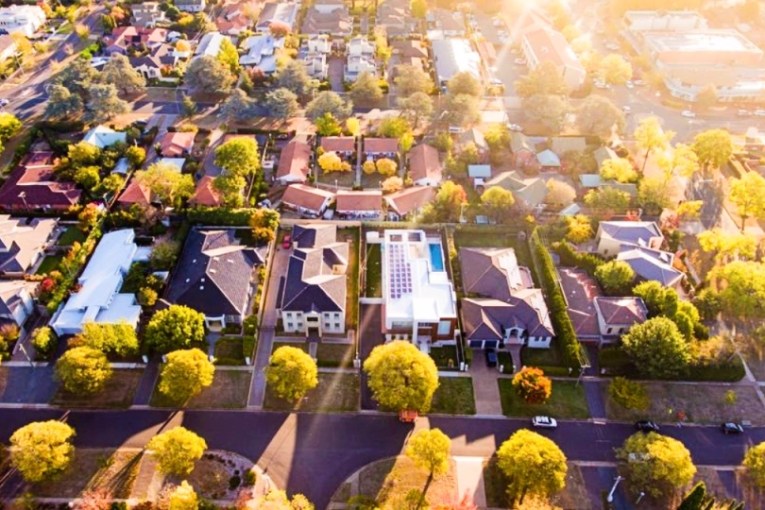Paula Matthewson: We all need to do much, much more to stop domestic violence


It will take Australians on all levels to put an end to the cycle of domestic violence, Paula Matthewson writes. Photo: TND
“Oh no. Not another one.”
Thoughts like this crossed the minds of many Australians this week when they learned yet another woman had violently died, at the hands of a man she knew – in this case her estranged husband. The couple’s three children also died in the car fire he ignited.
“How does this keep happening?” seems to be the next thought that springs to mind.
“Why do men keep killing women, and why doesn’t somebody do something about it?”
You may be one of the fortunate few whose life has not been touched by family violence, but it is more likely that you, or someone you know, has experienced physical or another form of abuse from a partner or family member.
According to Our Watch, the organisation established to stop violence against women and their children, about 50 women are killed by their current or former partner each year – that’s an average of one woman a week.
Part of the reason why enough is not being done about domestic violence is that it’s hard to talk about. It seems to be one of the few topics that remains taboo.
But why is that so? Most people probably wouldn’t think twice about taking action to stop a stranger in the street from beating another person, so why do we hesitate to take action when the violence happens within the walls of a family home?
If the abuser is a male friend or senior member of a family group, it can be hard to get past the feeling that it’s not right to intrude on a man’s personal business.
This is where we start to get to the nub of the problem. Violence against women has a lot to do with gender-based ‘drivers’ that we don’t do enough to question or challenge.
To prevent violence against women, we need a shared, consistent and mutually reinforcing approach, where all levels of government, business and the community contribute to creating a safer Australia built upon respect and equality. #HannahBaxter #PVAWhttps://t.co/4qsNco8A1Q
— Our Watch (@OurWatchAus) February 20, 2020
Such as the implicit or explicit condoning of violence against women, men dominating decision-making and restricting the independence of women family members, emphasising the ‘traditional’ roles of men and women, and promoting aggression to show disrespect.
Organisations like Our Watch continue to slog away on these underlying societal drivers of domestic violence. But as the saying goes, they can’t do it alone. They need every Australian to step up to bring about the necessary change.
For a start, that means never excusing a violent or abusive act, no matter the provocation. There is no excuse for murder, family violence or sexual abuse. None.
Suggesting an estranged wife was somehow responsible for the murderous actions of her spouse is the same as blaming a girl walking home at night for being raped by a stranger. No-one other than the murderer or rapist is responsible for their actions.
Stepping up also means resisting the urge to ignore the precursors to, or evidence of, violent behaviour. Call out disrespectful language and behaviour – when it is safe to do so – or call for help if you can’t.
Tools are available to ensure that anyone in Australia who needs support can access #1800RESPECT. This includes the National Relay Service, the Translating and Interpreting Service, and web tools for people with #disability. Find out more on our website. https://t.co/S08V82qqdV
— 1800RESPECT (@1800RESPECT) February 20, 2020
Suggest a mate or colleague seek help if they have trouble with aggression or anger. Call the RESPECT help line if you are concerned that someone you know is being abused. Most importantly, show respect for women and men, and insist that your family and friends do the same.
So that’s what we can do. But what about governments, which are meant to be serving the national interest. What else should they be doing to stop Australian women and children being murdered?
A cursory glance at government spending on domestic violence and the abuse of children shows that it’s not anywhere near enough. There’s not enough adequately trained police to effectively respond to domestic violence incidents.
 Beaten women and abused children continue to fall through the cracks of the overworked family welfare system. There is never enough emergency housing for women trying to escape abusive partners.
Beaten women and abused children continue to fall through the cracks of the overworked family welfare system. There is never enough emergency housing for women trying to escape abusive partners.
And the family court system is broken.
Yes, domestic violence is a complex, wicked problem. But that is why governments exist, to help solve problems that citizens cannot fix on their own.
Politicians need to do more than wear the right coloured ribbon on their lapel and intone how shocking this latest murder is. Every woman’s violent death is shocking, they never get any less shocking.
What Australian women, children, and yes, men, need is governments that are prepared to give more than lip service and few million dollars to better understanding the underlying factors and dealing with them.
Yes that means spending a lot more on men’s mental health, too. Police, welfare support systems, and the courts need to be better equipped and resourced. The budget to combat domestic violence should have no upper limit, just like the defence budget.
What we don’t need is a bunch of politicians posturing over the latest review of the family law system – which was created by the Morrison government as a sop to One Nation leader Pauline Hanson.
Senator Hanson, the deputy chair of the review, relies on the experience of her adult sons to conclude that most women fabricate domestic violence allegations to win custody battles.
If you or someone you know is impacted by sexual assault or family violence, call 1800RESPECT on 1800 737 732 or visit www.1800RESPECT.org.au. In an emergency, call 000.








